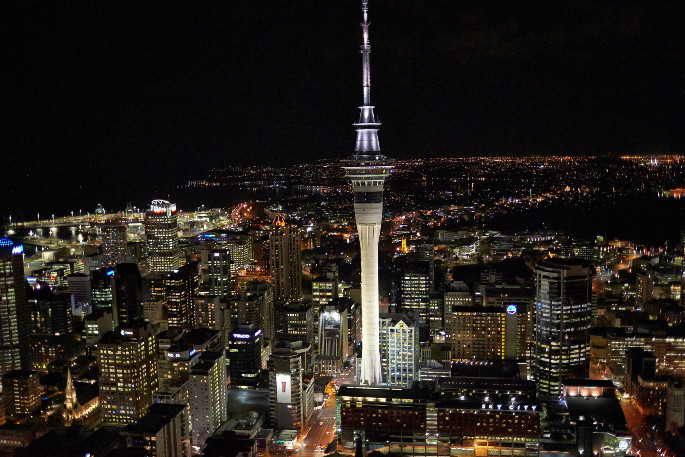Tāmaki Makaurau Auckland outperforms international peer cities for its easy-going lifestyle, highly-regarded natural environment and great visitor experiences, but needs to lift its game in infrastructure planning, attracting investment and talent to boost productivity and innovation, and addressing safety and housing affordability impacting communities.
These are a few of the many insights contained in the first The State of the City, a comprehensive new report by UK-based urban intelligence firm The Business of Cities that benchmarks Tāmaki Makaurau Auckland’s performance against peer cities in Australia, Asia and the Middle East, Europe and North America. References to” Auckland” or “the city” refer to the Tāmaki Makaurau Auckland region unless otherwise specified.
The report was commissioned by Committee for Auckland, an organisation that encourages Auckland’s business and civic leaders to fulfil the city’s potential, in partnership with consulting firm Deloitte and Auckland Council’s economic and cultural agency Tātaki Auckland Unlimited with support from the New Zealand Government’s Auckland Policy Office and Koi Tū The Centre for Informed Futures at Auckland University.
Committee for Auckland director Mark Thomas says examining Auckland through the lens of global benchmarks for the first time offers a fresh look at how the city is performing on the world’s stage, areas of strength and where more focus is required.
“The report tells us Auckland needs to do more to be resilient, decarbonise at pace, adapt to new working patterns, address inequalities, and compete for talent, visitors and investment.”
He says Auckland plays a very significant role in Aotearoa New Zealand’s economic growth, international profile, and in responding to national challenges such as the impact of climate change. However the region’s response to big problems has typically been short term or ad-hoc, with significant opportunities missed.
“Among our peers Auckland has pressing knowledge, skills and innovation deficits. The region is not providing the skills needed to match the growing demands in technology-led sectors. Also, a range of innovation enablers need attention including access to incubators, university pipelines, seed and early state funding.”
Tātaki Auckland Unlimited director of investment and industry Pam Ford says the report builds on the 2022 Tātaki Auckland Unlimited-commissioned report, Reimagining Tāmaki Makaurau Auckland: Harnessing the region’s potential, by focusing on the leading qualities Auckland possesses among its international peers and looking for opportunities in the areas currently holding the region back.
“Auckland’s appeal as a liveable city is well known and frequently confirmed in international rankings. However, one of the key insights of The State of the City report is that for the city to improve its global performance, we need to focus on the conditions for attracting more businesses, investment and talent into Auckland’s innovation economy.
“There’s a need for supportive national policies and local economic development interventions to ensure Auckland doesn’t miss out on international talent, investment, trade, innovations, visitors, events, and the positive economic and social outcomes these bring – to our region and the country.”
“Tāmaki Makaurau has a strong foundation in high value technology sectors such as foodtech, cleantech and aerospace. To support their momentum, the opportunity for Auckland is to focus on strong outreach, visibility and relationships in international markets, as well as efficient local infrastructure, planning, and setup costs.”
Deloitte partner Anthony Ruakere says State of the City provides us with valuable insights into how Māori compare to indigenous populations in peer regions.
“Although Auckland prides itself on its ethnic diversity, it is important to acknowledge Māori as tangata whenua, and Ngāti Whātua’s role in the founding of the city.
“Despite some progress, Māori and Pacific communities still face significant disparities, such as limited workforce inclusion, lower rates of home ownership, restricted access to higher education, and lower incomes.”
Mark says last year’s Reimagining Tāmaki Makaurau Auckland report found a much stronger consensus is needed between the Government, the Council and Aucklanders on the city’s priorities and the system-wide changes required to deliver the progress needed.
“The State of the City report can help forge this by highlighting the areas holding Auckland, and by extension New Zealand, back and by proposing actions which can help improve Auckland’s contribution to the nation.”



